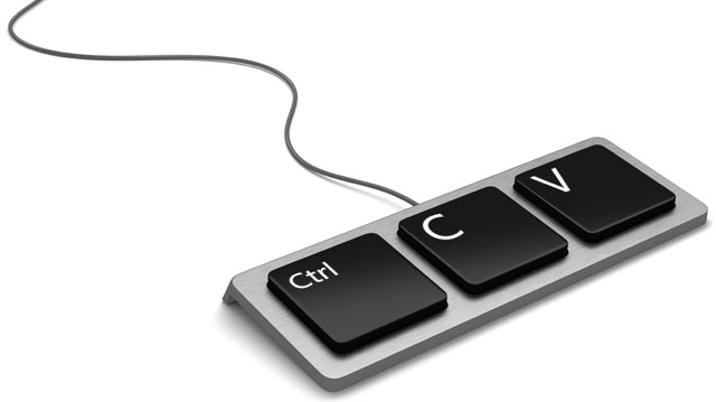
Calling authority to account, speaking truth to power, writing the first draft of history. All the clichés were there. Oh, how The Post made us feel good about our trade.
We can all list examples of important public-interest journalism, from the Pentagon Papers that were the subject of Spielberg’s latest film to the Panama Papers nearly half a century on. We see the bravery of journalists all over the world, with frightening numbers dying or being imprisoned in the course of their work.
There is a nobility about journalism, and we all want to buy into that, even when we’re writing about a village fête. We are the upholders of democracy, and that’s why we must be free to mock B-listers who look a bit hungover on their way to Tesco Express.
But suppose we turn the lens the other way. How does our industry measure up to the sort of scrutiny we apply to others?
We attack “fat cats” with vast salaries and investigate their workers’ pay and conditions, yet our favoured executives enjoy six and seven-figure incomes while reporters’ jobs are cut, workloads increased and pay suppressed.
We criticise big businesses that hang small suppliers out to dry by making them wait for payment, yet we are slow to cough up to the independent journalists who unearth most of the “true life” human interest stories that fill our magazines and feature pages.
We expect politicians and chief executives to answer our questions, but our leaders refuse to respond to fellow journalists’ queries about their own behaviour, referring inquiries to non-journalistic corporate spokesmen and women. The prime minister, party leaders, cabinet ministers all face television inquisitors; when did a national newspaper editor last do that – other than to promote an exclusive? If someone must appear, one of the legions of “senior executives” is sent in to bat, never the head honcho.
But we’re different, the argument goes. Politicians have a duty to answer. They are accountable to the people and journalists represent the people. Are newspapers not accountable? We are accountable to our readers, we say. They “vote” for us every day. And we have a regulator to make sure we stay in line. Except the readers aren’t going to take us to task over plagiarism; Ipso (or even Impress) isn’t going to censure us over our accountancy.
So, here’s a bit of self-examination, specifically on how we treat our suppliers – freelance journalists.
Slow payment
Budgets everywhere are being squeezed, it’s harder to find homes for stories and rates for them are being cut. That makes an already precarious occupation more difficult, but people understand and reluctantly accept the new realities. What they can’t stomach is the way they are expected to spend time and money on research for commissions that can be changed on a whim, then have to wait months for the finished article to appear – and on top of that, face abuse and threats when they ask where their money is.
As Brighton-based writer Melanie Whitehouse says: “Payment on publication is the biggest bugbear. I recently got paid for a feature I wrote at the end of August. It was used at the start of December, and finally paid for at the end of January. I’m a sole trader, single, with nobody else bringing in the money. As more and more publications adopt the ‘pay after publication’ approach, it is becoming increasingly impossible to manage, and if you make a fuss, you’re told to go elsewhere.”
Another writer answered a magazine call-out for case studies and a fee was agreed per example. She offered three, but only two found favour (the editor arranged her own interview with the third). “I filed on these terms and sent an invoice. It wasn't paid, so I had to chase endlessly. The commissioning editor first ignored me, then signed off half the agreed fee - so I had to start chasing all over again.”
Commissioning editors may be under pressure from above and they are certainly bombarded with unsuitable pitches day after day, but some of the emails they send to contributors make you wince. One writer told a publisher that had previously kept him waiting six months for payment that he would supply no further copy until his outstanding invoice was settled. He received this reply: "You may be able to write, but you sure as shit can't count… The sad thing is you live in the past. Publishing was decimated and we had a horrendous time trying to survive through that period and I had a duty to the full-time staff on my books. Do you honestly think it made me feel good paying suppliers late? There is far worse than me about.” The message ends with a note to a secretary to “get this keyboard warrior off my books once and for all”.
The strong impression from talking to more than 50 freelancers is that it is not unusual for desk executives to seek to renege on agreements with contributors, presumably to stay within their budgets. There are too many stories of contributors having to go over commissioning editors’ heads to management or even threaten small claims court action to get their contracts honoured. But the evidence is that where writers stand their ground and take their case further up the food chain, their invoices are settled – whether out of honour or for the sake of a quiet life.
Plagiarism
At least in the case of commissioned features, the writers are generally acknowledged, their work credited in the publication and the money eventually lands in their banks. But there are other issues that cut to the heart of our industry’s reputation and credibility.
In 2014, Rupert Murdoch’s News Ltd sued Mail Online’s Australian arm for plagiarism, but eventually settled the case. In 2015, the American journalist James King published a dossier about his working life in New York entitled “My year ripping off the web with Daily Mail online”. The Mail sued for $1m but by then, the publisher had gone bankrupt, so it settled for a right of rebuttal with no money changing hands. In 2016, the former Times foreign chief Martin Fletcher travelled at his own expense to research the neglect of war graves in Iraq. Within five hours of it being published in his old paper, it appeared on Mail Online under someone else’s name. His invoice was settled without any admission of wrongdoing.
Last December, Julie McDowall went to Chernobyl as part of her research for a book about nuclear war. She tweeted, “We are the only people here. Near total silence”. She used some of the material she had gathered for a Guardian article, which was headlined “Meet the dogs of Chernobyl”. Within hours, a similar story appeared on Mail Online under the heading “Meet the dogs of Chernobyl” with the same pictures – and a different byline.
One Mail Online staffer told InPublishing how the website operated. Reporters were, he said, handed links to stories in other papers or other websites and told to rewrite, turn into house style, put their name on it, then source pictures and factboxes – all within 45 minutes. They call these “rips”. There were three clear instructions to protect the site from the risks of plagiarism or breach of copyright:
- Take a maximum of three paragraphs or quotes
- Rewrite / paraphrase the rest
- Add something extra
With so little time to contact people who feature in these stories, the first port of call for that “something extra” is PA, followed by Twitter – it’s easier to lift a tweet than to make a phone call.
There is a box on the content management system for reporters to log the source of a story and they are also told to note clearly where agency copy is used, so that the supplier can be paid. Some freelancers and agency writers are bylined.
This is difficult territory in an era when material is shared so widely. We all follow up each other’s stories – look at the MPs’ expenses scandal: every night newsdesk in Fleet Street was on high alert for the first edition of the Telegraph to drop so that we could all tell their story. In that case, there was no option but to state upfront where the material had come from and give the Telegraph credit. But we were ripping off their work; rival papers didn’t send lineage payments through to Canary Wharf. What’s so different about less momentous stories, once they are “out there”?
Or put another way, how can writers keep control of their work?
The key stumbling block is that however much research you put into a project, the information you gather is fair game. The courts have ruled that there can be no copyright on news or information. Copyright lies in the words you use to share that information.
Mail Online may be most people’s villain of choice, but it clearly understands the law and it does have a history of paying up when challenged. Also, as we see from the above, there is a mechanism to ensure that agency bills are settled. But there are many examples of newspapers, magazines and news agencies showing a cavalier attitude to the sources of their stories.
- Some tinker with agency copy, put a staff byline on the top, and pay the original source;
- some do further research and publish as a piece of “original” work without acknowledging – or paying – the person who came up with the story;
- others lift material wholesale, add nothing new other than a staff byline and then try to avoid paying the journalist who did the real work.
You might call these practices byline banditry, cannibalism and outright plagiarism – or theft.
The tabloids are constantly under fire for all sorts of reasons, but they do seem to be more honourable about crediting contributors who come up with exclusives. This is important because without bylines, how can freelancers show potential clients their back catalogue; how can they build their reputations? If someone else’s name is on the top, then the follow-up tip-offs will go direct to that staffer, not to the person who generated the story.
Second bite of the cherry
Last summer, the medical writer Lucy Canter wrote for the Mail about a psychologist scammed in an £18,000 fraud. Other papers followed up with direct approaches to the subject of the story – who happened to be her father, Dr David Canter. Quite legitimate behaviour, you’d think. Except that the first paper out of the block to pick up the story had previously rejected it several times when she’d pitched it to them. The same happened with a breast milk story that was turned down by several papers before being published by the Telegraph – only to pop up everywhere afterwards. She asks: “If these stories were publishable, why didn’t anyone respond to my pitches?”
Because it is cheaper to get someone in the office to chase something in another paper than to pay for the original?
Canter characterises what happened to her as cannibalism. There are bigger sins.
One science and consumer affairs writer tells how The Times picked up an exclusive story he had offered through the wires: “It appeared almost word-for-word next day under another writer’s name. When no payment arrived, I emailed the staff member, who said ‘You are not due any payment, you didn’t write the story, I did.’”
On being challenged further, the staffer claimed that he had conducted all the interviews in the story. The freelancer went back to the source organisation, which confirmed it had spoken to no other journalist. Armed with this evidence – and after threatening legal action – he got his money.
For a novel take on this sort of thing, how about the social media website that last month lifted a complete news story from a Sunday tabloid and published under another byline. At the bottom of the piece was a further credit: “Words by xxx xxx” – the real author. Sometimes you have to laugh.
To state the obvious, a byline should tell the reader who generated the story, not who last put their hands on the keyboard – we don’t byline subs, so why credit reporters asked to “sprinkle magic dust” on agency copy? It is a statement of ownership and responsibility. From the publisher’s point of view, it should indicate the person with the quotes in their shorthand notebooks to back up the copy.
Most freelancers are reluctant to speak publicly about this sort of treatment, for fear of being blacklisted or getting tangled in legal actions. Another who asked to remain anonymous described how an article she had written for the Telegraph was lifted by a magazine without reference to her or the Telegraph. When the writer, a journalist with 40 years’ experience, challenged the editor, he told her it was “normal aggregation” and that when she had been in the business as long as he had, she would understand. She declined to take it further, not only for fear of falling out with the editor, but because his magazine had a popular social media presence and she was afraid of a Twitter backlash.
Copy and paste
One writer who has put her head above the parapet is Sheron Boyle, who works in the north of England and mostly writes for tabloids and magazines. Last year, she found a story about a woman who had passed her final ballet exam at the age of 80. She sold it exclusively to the Mail and it appeared in January. That day she received a call from The Times picture desk asking about the collects that had gone with the piece. She assumed that the Mail had sold on the secondary rights (contrary to her contract), so was initially concerned only about whether she would be credited for her work. She was passed to the reporter working on the story and he confirmed that it was going in the next day’s paper. After several phone calls, the newsdesk agreed to go against “usual practice” and give Boyle a second byline on the piece.
Apart from a different intro, the story that appeared in The Times was identical to the one in the Mail, which turned out not to have sold it on. How did the copy get into The Times’s system? Had someone copied it from the Mail or cut and pasted from the web? If the picture desk had not rung Boyle, would anyone have contacted her to negotiate terms of publication?
No calls were made to the woman in the story, but her quotes and those from her daughter were reproduced wholesale. Supposing Boyle had made them all up? Without making the most basic checks, how could The Times be sure the story was even true?
The American way
America seems to take these things much more seriously than we do. On the very day the Boyle row was brewing, Daily Beast reporter Lizzie Cocker resigned after being caught out cutting and pasting a story from a weekly paper. The article was immediately taken down from the website, a further investigation started that led to more articles being removed, and a statement issued: “One incident is enough… We take plagiarism seriously and will not allow the hard-earned trust we’ve built with our millions of loyal readers to be compromised.”
Exactly. Behaviour such as this not only raises questions about the treatment of freelancers and their work, but also risks newspapers’ reputations for accuracy.
In Boyle’s case, there is no suggestion that the writer tried to pass off her work as his; he had been asked by the desk to work on it and was not to know that it was in his hands without her consent. Nor would he have put his name on the copy – bylines are in the gift of the newsdesk. The paper has brilliant journalists who do important journalism. Why would they want their names on lightweight stories they had nothing to do with?
Yes, this story was just a bit of fun about an elderly ballet dancer, but what if the subject matter were more serious? If the answer to that is that “of course checks would be made”, then that begs further questions: Is truth pliable? Does the imperative of making sure that what gets into print is correct apply only to selected stories? Is this common practice at the Thunderer? Does the editor know about such activities or condone them?
All of these questions were put to the staff writer, the newsdesk and the editor, John Witherow. The first approach met with silence, the second elicited an email from director of communications Jessica Carsen saying: “Thank you for contacting us, but we're not commenting on this matter.”
Boyle has written to Witherow and News UK director of operations David Dinsmore seeking an explanation and payment. After four weeks, neither had responded.
When you’re leading the world with an important exposé of an international charity, why allow your brand to be tainted over an old lady in a tutu?
The courts’ attitude to copyright and the news was laid down in tit-for-tat cases brought in 1990 by the Daily Star and Today newspapers over their exclusive interviews with Andrew Neil’s former girlfriend Pamella Bordes and Princess Alexandra’s daughter Marina Ogilvy.
Sir Nicholas Browne-Wilkinson, the Vice-Chancellor, said that it would be against the public interest for copyright to reside in the substance of a news story, but that there would have been an infringement if a substantial part of the original reporter’s words had been taken verbatim.
“I would hesitate a long time before deciding that there is copyright in a news story which would be infringed by another newspaper picking up that story and reproducing the same story in different words. Such a conclusion would strike at the very root of what I think is the practice of the national press, namely to search the columns of other papers to find stories which they have missed and then using the story so found in their own newspaper by re-writing it in their own words.
“If it were the law that such practice constituted breach of copyright, the consequences, as it seems to me, would be that a paper that obtained a scoop from a confidential source would obtain a monopoly on that piece of news. That would not be in the public interest as it would prevent the wider dissemination of the news to the public at large.”
“I think, therefore, that it is very improbable that the courts would hold that a newspaper could, by reason of the law of copyright, obtain a monopoly on a news story as opposed to copyright in the actual words used by its reporter in reporting that story.”












